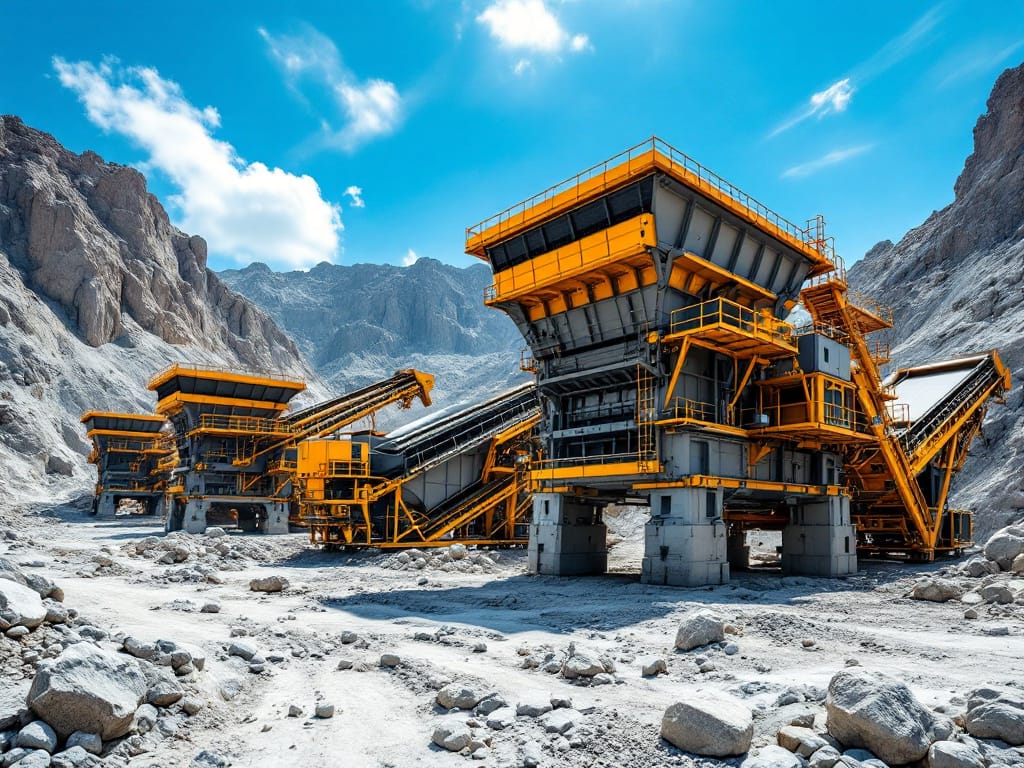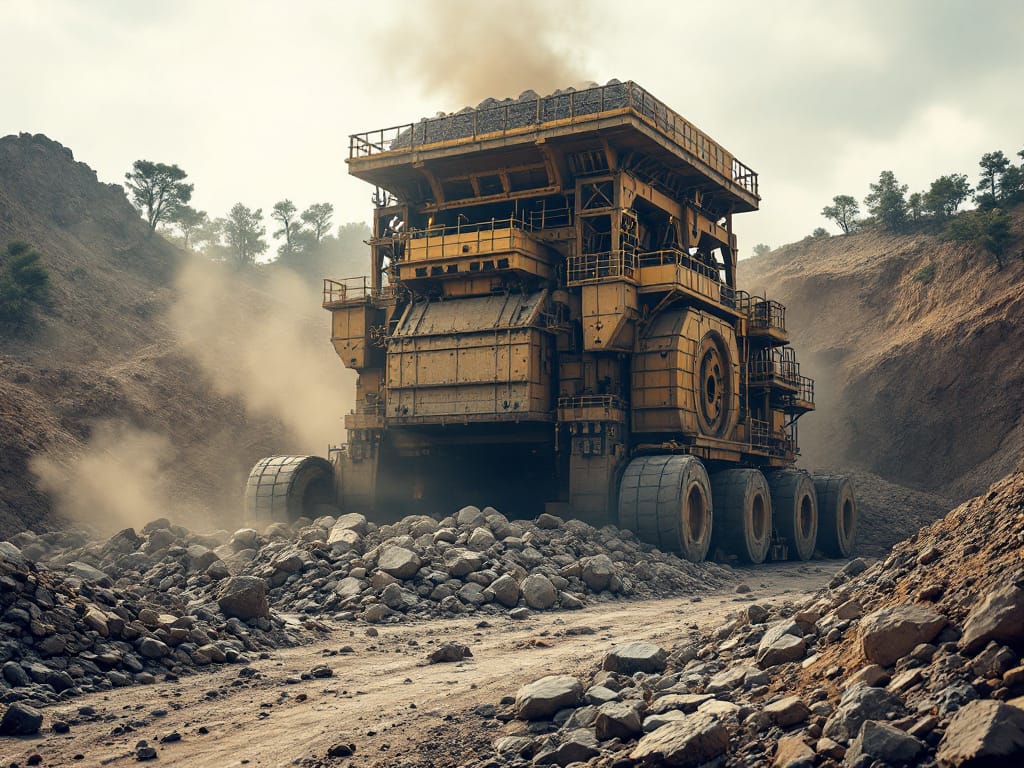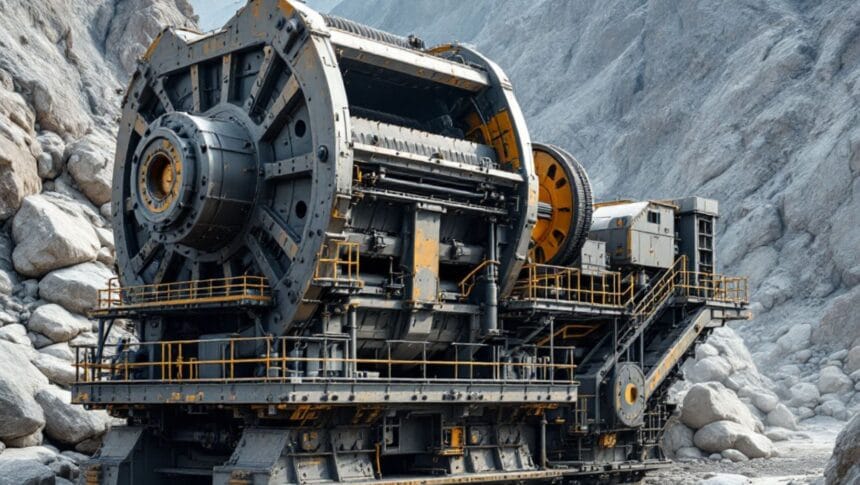Introduction
Stone Crushers play a crucial role in the construction and mining industries, breaking down large rocks into smaller, more manageable pieces. These machines are essential for producing aggregate materials used in roads, buildings, and other infrastructure projects. Whether you’re an industry professional or a business owner looking to invest in stone crushing equipment, understanding the different types, applications, and market trends will help you make informed decisions.

What is a Stone Crusher?
A stone crusher is a mechanical device designed to break down large stones into smaller pieces of varying sizes. These machines use different mechanisms to crush and grind rocks, making them useful for construction, road building, and industrial applications.
Types of Stone Crushers
Stone crushers are classified based on their operational principles and the type of material they process. Here are the most common types:
1. Jaw Crushers
Jaw crushers are primary crushers used for coarse crushing. They have a fixed and a movable jaw that crushes stones between them. These machines are ideal for breaking down hard and abrasive materials like granite and basalt.
2. Cone Crushers
Cone crushers are secondary or tertiary crushers that use a rotating mantle inside a concave bowl. These machines provide finer output sizes and are widely used in the mining industry for processing rocks like limestone, sandstone, and gravel.
3. Impact Crushers
Impact crushers use a high-speed rotor and impact plates to break stones. They are suitable for softer materials like limestone and are often used in recycling applications.
4. Hammer Crushers
Hammer crushers use high-speed rotating hammers to break rocks. They are efficient for medium-hard materials and are commonly used in cement plants.
5. Mobile Crushers
Mobile crushers offer flexibility in construction sites, allowing easy movement from one location to another. They are ideal for projects requiring on-site crushing and screening.
Applications of Stone Crushers
Stone crushers have diverse applications across various industries. Some of the key areas include:
- Construction: Used for making aggregates, concrete, and road base materials.
- Mining: Extracting and processing minerals like gold, iron, and coal.
- Agriculture: Crushing stones to improve soil aeration and drainage.
- Recycling: Processing construction waste into reusable materials.
Factors to Consider When Choosing a Stone Crusher
Selecting the right stone crusher depends on multiple factors, including:
- Material Hardness: Choose a crusher based on the type of stone you need to process.
- Output Size Requirements: Consider the final product size for your project.
- Capacity Needs: Ensure the crusher can handle the required production volume.
- Mobility: Decide between stationary and mobile crushers depending on your project location.
- Maintenance and Operating Costs: Opt for machines with low maintenance requirements and operational efficiency.
Latest Market Trends in Stone Crushing Industry
The stone crushing industry is evolving with new technologies and trends. Some notable trends include:

1. Automation and Smart Crushers
Modern stone crushers come with automation features that improve efficiency and reduce human intervention. These machines offer real-time monitoring, automatic adjustment, and predictive maintenance capabilities.
2. Eco-Friendly Crushing Solutions
Environmental concerns have led to the development of eco-friendly stone crushers that use less energy and produce lower emissions. Dust suppression systems and noise reduction technologies are becoming standard.
3. Growing Demand for Mobile Crushers
With increasing infrastructure projects, the demand for mobile crushers is on the rise. These machines provide on-site processing, reducing transportation costs and time.
4. Use of Advanced Materials
Manufacturers are now using wear-resistant materials to enhance the durability of crusher components. High-strength alloys and composite materials help extend the lifespan of crushers.
How to Maintain Stone Crushers for Longevity
Proper maintenance is crucial for maximizing the efficiency and lifespan of stone crushers. Here are some essential maintenance tips:
- Regular Lubrication: Ensure all moving parts are well-lubricated to reduce wear and tear.
- Inspect and Replace Wear Parts: Monitor components like jaw plates, hammers, and mantles for signs of wear.
- Check for Blockages: Clear any material build-up to prevent clogging.
- Monitor Electrical Systems: Ensure proper functioning of motors and control panels.
- Schedule Routine Inspections: Conduct regular checks to detect and fix minor issues before they escalate.

Future of Stone Crushers
The future of stone crushing is promising with advancements in AI, automation, and eco-friendly technologies. The industry will see increased efficiency, reduced environmental impact, and improved safety standards. As demand for sustainable solutions grows, manufacturers will continue to innovate and provide more efficient and user-friendly stone crushers.
Conclusion
Stone crushers are essential machines in construction, mining, and recycling industries. Understanding the different types, applications, and market trends will help businesses and professionals make informed choices. Whether you’re investing in a new crusher or upgrading your existing machinery, selecting the right equipment will enhance productivity and profitability.
By staying updated with the latest trends and maintaining your stone crusher properly, you can ensure long-term success in the industry. If you’re looking for reliable stone crushers, explore the market to find models that best suit your needs.
Read More: The Future of Smart Speed Bump
Read More: High-Performance Concrete Build Business Case Value
